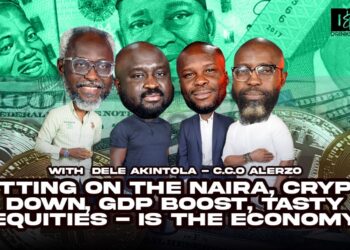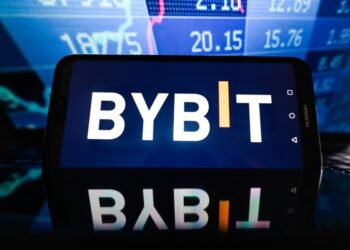When Bitcoin was created, the motivation behind it was to break the bias and trend of the fiat banking system, in a bid to create a new form of money- digital money, that was away from the influence of the government. However, for an item to be considered money, it is expected to have three core functions, which are: medium of exchange, measurement of value and lastly store of value.
Although cryptocurrencies like Bitcoin fulfill two of the criteria mentioned, which are; measure of value and store of value, however, cryptocurrencies are not really recognized as a medium of exchange in Nigeria. This means it cannot really be considered as money because there is still a need for more acceptance by buyers and sellers alike to accept them as a means of payment. However, with Manilla Finance, all this is about to change.
The use of crypto as a means of payment is not a new development in advanced economies, as over 250 companies and retail outlets accept cryptocurrencies as a means of payment. Examples of these companies include Tesla, Gucci, Farfetch, Microsoft, Starbucks, Whole Foods, AT&T, Travala and so on. However, in Nigeria, this is a new phenomenon and an indicator that businesses and the economy as a whole is now warming up to using cryptocurrencies as a medium of exchange.
Manilla Finance is a cryptocurrency-driven platform that is looking to allow its users pay for their utility bills, using cryptocurrencies like Bitcoin and Ethereum. According to the platform, its users in Nigeria, Ghana and Uganda can pay their electricity bills from their crypto balances as they have integrated a blockchain payment gateway with PHCN of Nigeria, KenGen PLC of Kenya and UEGCL of Uganda.
Nairametrics was able to interview the CEO of Manilla Finance, Rutherford Atayobo, to tell us a bit about the new initiative.
The ability to pay for bills and book flights using crypto as a medium of payment is a feat even those in advanced nations have struggled with. How has Manila Finance managed to accomplish this?
Web3.0 or if you like, blockchain development, is an area that’s progressively being developed. For many years to come, we are still going to have developers experimenting with new protocols that may not work. This is exactly the reason why there is a number of abandoned projects that are so many on the blockchain compared to conventional applications on Web2.0.
To get it right once and for all, you need experienced ecosystem development partners working directly with your cohort of developers and this exactly is what we have done. We are working directly with a United States-based technology firm that has pooled most of these services together so we just need to tap into their pipeline and create a protocol that replaces fiat with our preferred payment method which is cryptocurrency. Please note that flight and hotel bookings are the last services that will be deployed since we want to ensure it is flawless before pushing it live for use.
In a heavily regulated environment like Nigeria, where banks are banned from processing crypto-related transactions, how does it hope to achieve this?
The Manilla Finance platform does not rely on traditional banking services for its operation as we are not routing scripts or API’s through conventional financial solutions. We earnestly yearn that regulators will relax some of the restrictions to enable Nigeria to participate in the global digital economy devoid of bottlenecks. It will be an action we believe will greatly impact the Nigerian economy positively since digital currency adoption has gone through the roof since the last bull run. More are entering the space and already taking suitable positions as the blockchain world anticipates the mother of all bull markets come 2024/25.
Meanwhile, even if Nigerians or users in every country where we are going to operate decide to use the application for payment of bills, all returns are ploughed back to the original service providers through fiat. So, our services do not really write off the use of fiat, it simply provides an outstanding and faster alternative – cryptocurrency.
Are there worries about a regulatory crackdown, being that the Nigerian government and economy as a whole have not really warmed up to cryptocurrencies at the moment?
What really matters most to us is the massive community of crypto traders, enthusiasts and holders who will use the Manilla application. There is already a bottleneck created by many governments (not just Nigeria alone). These restrictions make switching directly from crypto to fiat difficult and this automatically makes our product a welcome development because what we are building provides users with the rare opportunity of paying for the multiple services we offer without recourse to the local currency. We are also adding our quota to nation-building by paying for these services in advance on behalf of the users and reselling the services in crypto.
Seeing that what we do benefits the local economy directly would make me worry more about releasing a perfectly working product and bother less about the body language of the regulators. Again, I do hope the regulators embrace blockchain technology and by extension digital currency so we can build amazing, innovative and high-impact products and make the Nigerian technology space the cynosure of all eyes. As at this minute, the digital currency industry currently flaunts a value of over $1 trillion. I am not sure this is a market we want to ignore for too long.”
Do you believe Africa is ready to adopt cryptocurrencies as a means of payment?
African countries like Nigeria, South Africa, Kenya, Zimbabwe, Botswana and many more rank very high globally in terms of digital currency adoption and use. In countries where there is less adoption and use, we are going to drive the adoption and position ourselves properly, pending when digital currency is embraced in those countries.
We need to begin to understand at this time, that it’s just a matter of time before global adoption hits a new all-time high. And because the meteoric rise and acceptance is inevitable, it is imperative that technology firms like ours take position as an “Africa-focused firm” before other players start nesting fully on the continent. Do not forget also that Africa is the next frontier that fortune 500 firms hugely covet and desire to venture into. We have the home advantage with over 60% of our team being Africans to be present in some of these countries to be forerunners.
So, to us, it’s not all about launching a product, it’s also about driving adoption through education and utility provision. Besides all these, we are scaling to be focused on imperilling localized user experience on the application. That way, the utility will be fully based on the everyday needs of the natives of that particular country.”























I like that the project doubles as pan-african yet solves global problems!
It’s good to see expected conservation advancing in the appropriate direction but on the contrary and speaking about medium of exchange as one of the core function of money, all commercial banks today as secondary issuers of eNaira to the CBN (as par the approved design implementation roadmap with extension to the other payment service providers) have the potentials switching on transactional services at retail and merchant levels within the next 24hrs not minding the waiver on transaction fees to compliment the deposit and withdrawals services already achieved putting the adoption rate @ 11.9% as at the 14/12/21.
Secondly, does Manilla Finance see any integration and service interoperability opportunities with the CBN’s digital platform (eNaira) for trade and service advantage considering the fact that the latter rides on blockchain technology?
Thirdly, do you mind providing details on your product and asset management support for b2b customers?
Fourthly, how does Manilla Finance intend solving all forms of security concerns not limited to platform and transactional related services whilst ensuring that all operational, reputational and cybersecurity risks including but not limited to the achievement of all CBN’s anti-money laundering service objectives are met within the project delivery phase?
Next is, what is the intended platform based currency and corresponding exchange rates and do mind sharing the rationale behind it and the adaption to local intricacies beyond Nigeria?
Lastly for now, how does Manilla Finance through partnerships with the US based company of chosen intend managing all system based service related agreement to support b2c, b2b and b2G customers?
Additionally…,
Question Seven, how will varying customers access these wallets and what the funding options?
Question Eight. With the assumption that your platform will onboard and support varying customers types, can you enforce system based registration policies that aligns with the local environment intricacies (CAC in the case of Nigeria) so we make the platform less attractive to fraudsters?
Question Nine. With the assumption that your platform will onboard and support varying customers types, can you enforce system based registration policies that aligns with the local environment intricacies (CAC in the case of Nigeria) so we make the platform less attractive to fraudsters?
Question Ten, For inclusion purposes, what is the level of support available to agents to ease the support available to rural customers?
Question Eleven, conceptually what is the level of platform readiness at go-live to support entertainment and holistic health management services intended to operate in any environments including the virtual?